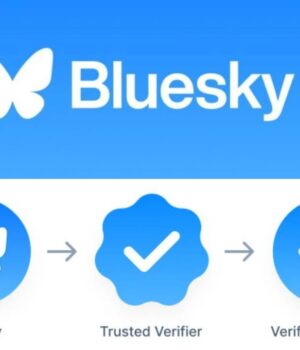Source : INDIA TODAY NEWS
Bluesky, the social media platform, has rolled out a verification programme for users aiming to confirm their identity or notability. Similar to the old Twitter traditions, if you have a BlueSky account, you can apply for its new verification badge. Announced by the Bluesky Safety account, the initiative now allows “notable and authentic” users to apply for verification via a newly launched online form. Alongside individual applications, Bluesky is also inviting organisations to sign up as Trusted Verifiers. These trusted bodies will gain access to verification tools, enabling them to confirm the identities of others on the platform. This feature was piloted last month with select partners, including The New York Times, Wired, and The Athletic.
advertisement
However, the return of a blue badge has raised eyebrows among some users, who fear it might usher in the same status-driven culture that once defined Twitter (now X). Twitter’s verification system, once a marker of authenticity and public interest, eventually morphed into a paid feature under Elon Musk’s ownership — a shift that many viewed as creating a hierarchy among users.
Bluesky is attempting to take a different route. Its verification strategy blends traditional vetting with decentralised tools. One of these includes allowing users to self-verify by linking their identity to a domain name, which then becomes their username — as seen with accounts like @npr.org. So far, more than 2,70,000 users have adopted this domain-based approach, claims Bluesky.
advertisement
Despite the launch, it remains unclear how Bluesky will evaluate verification requests. The online form sets out some basic conditions: applicants must be real people, legitimate businesses, or organisations; profiles should be active, complete, and secure; and a link to an official website is recommended, where applicable.
Yet, what constitutes “notable” remains vague. Bluesky states that notability should be judged within one’s field and region, using factors such as professional recognition, media mentions in credible outlets, listings on trusted reference platforms, or broader public interest. There may also be further category-specific standards, but these are not detailed publicly.
Applicants are encouraged to submit supporting links and evidence to bolster their case. Importantly, Bluesky notes it will only respond to successful applicants, indicating a manual review process likely aimed at ensuring public figures and key voices aren’t overlooked.
While this verification model might help establish trust, critics argue that launching it before building a larger network of independent Trusted Verifiers risks appearing overly centralised — counter to Bluesky’s ethos.
Meanwhile, an alternative Bluesky fork, Deer.Social, is testing a more community-led approach, allowing users to choose who they trust to verify others. This model decentralises trust entirely, offering a compelling option for those sceptical of central oversight.
SOURCE :- TIMES OF INDIA




